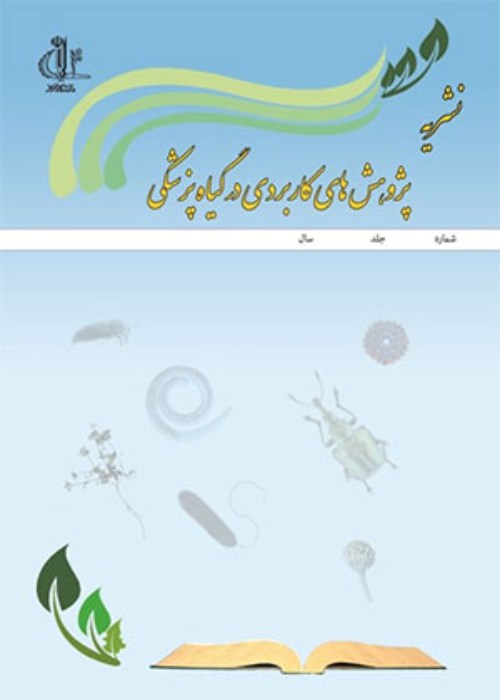First report of TTKTK, a variant of the race TTKSK (Ug99) of Puccinia graminis f. sp. tritici with virulence on the resistance genes Sr31 and SrTmp in Iran
Black or stem rust caused by Puccinia graminis f. sp. tritici is one the most important and destructive fungal disease of wheat worldwide. One of the most virulent stem rust races, having virulence on many stem rust resistance genes, is the race TTKSK (Ug99) which was first observed in Uganda in 1998 (Pretorius et al. 2000). Since 1999, 12 different variants of the race TTKSK (Ug99) have been identified worldwide, including TTKSF, TTKST, TTTSK, TTKSP, PTKSK, PTKST, TTKSF+, TTKTT, TTKTK, TTHSK, PTKTK, and TTHST (Bhavani et al. 2019). Despite the presence of this race in some provinces of the country since 2007, none of the variants of the race Ug99 have not yet been reported from Iran. In 2016, in the Shavoor district of Khuzestan province, severe stem rust infection was detected on Chamran2 cultivar (harboring the Sr31 gene). This evidence raised the possibility for the presence of Ug99 or its variants in the Shavoor region. The infected stem and leaf samples were collected from this cultivar and transferred to the cereal rusts greenhouses at Seed and Plant Improvement Institute. Three single-pustule isolates were multiplied on susceptible cultivar McNair 701. A set of 20 North American differential cultivars employed to determine the race. Phenotyping reaction (infection type) was carried out based on the 0 to 4 scale (Stakman et al. 1962) and the race designation was done based on Jin et al. coding system (Jin et al. 2008). Based on the values determined for each of the North American 20-genotypic differential genotypes, the Shavoor region isolate was identified as TTKTK, which is a variant of the Ug99 race (Figure 1). Previously this race has been reported from Uganda, Ethiopia, and Kenya (Patpour et al. 2016). The reaction of both the Sr31/6*LMPG line carrying the Sr31 resistance gene and the CnsSrTmp line carrying the SrTmp < /em> gene and Mv17, Falat, Shiroudi, and Chamran2 cultivars, which were confirmed by molecular analysis of the Sr31 resistance gene, in all replicates was susceptible to the isolate (3-4). Other races of Pgt, including TKTTF, TTRTF, and TTTTF, are virulent on the SrTmp < /em> resistance gene. It worth mentioning that this race is highly virulent and has very high pathogenicity (infection north American differential line and advances lines of wheat) and previous molecular studies have shown low frequency of effective resistance genes to Ug99 and its variants in commercial cultivars, advanced and promising wheat lines in Iran (Patpour et al. 2014); hence, this issue is a serious threat to the country's food security. Before the epidemic of this race, appropriate measures must be taken in to account including the introduction of effective resistance genes against the TTKSK (Ug99) and its variants in desirable genotypes that are widely cultivated under various climatic regions across the country.
- حق عضویت دریافتی صرف حمایت از نشریات عضو و نگهداری، تکمیل و توسعه مگیران میشود.
- پرداخت حق اشتراک و دانلود مقالات اجازه بازنشر آن در سایر رسانههای چاپی و دیجیتال را به کاربر نمیدهد.



